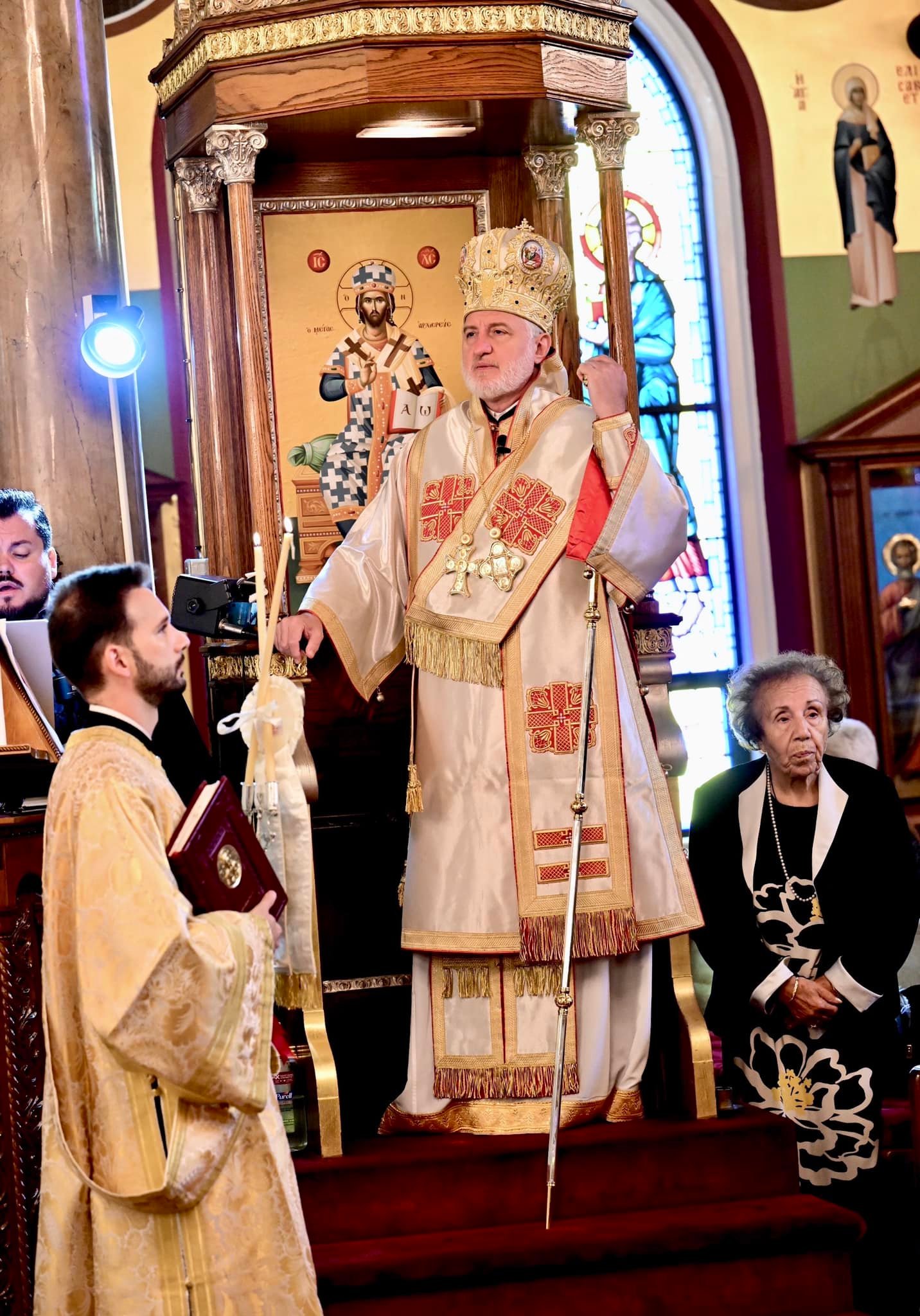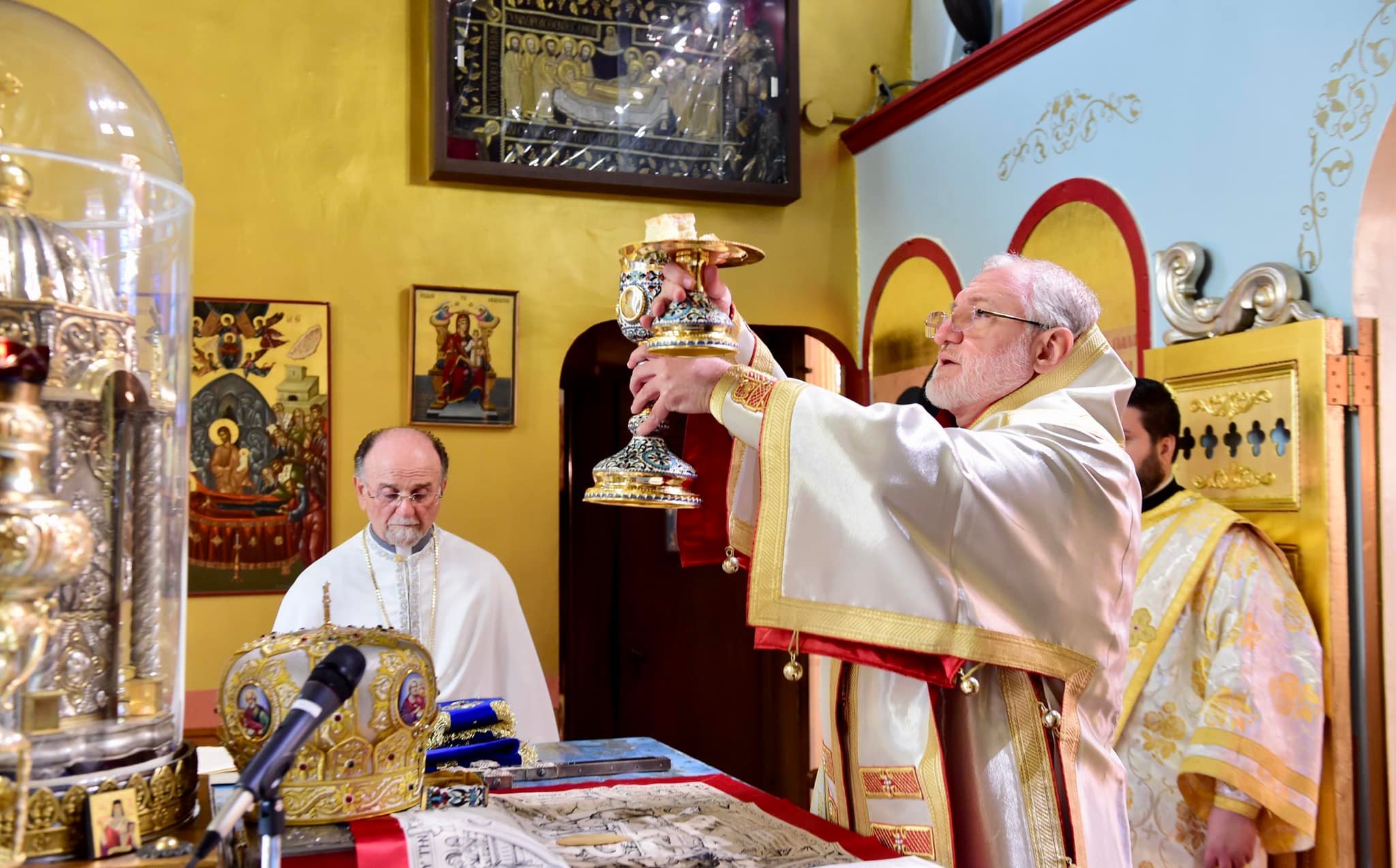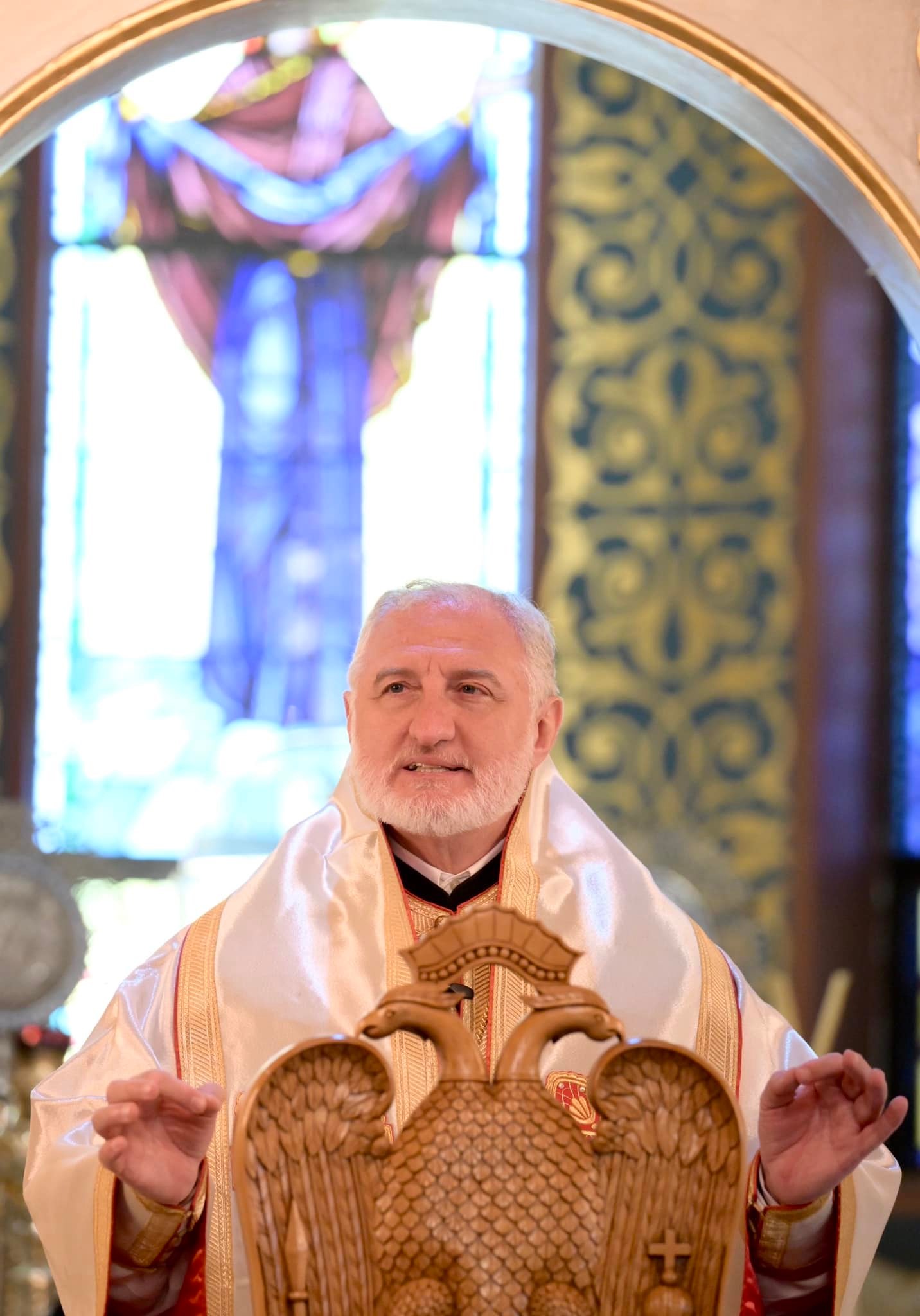Archbishop Elpidophoros of America delivered a speech on the Seventh Sunday of Matthew at Kimisis of the Theotokos Greek Orthodox Church in Brooklyn, New York, on July 31, 2022.
In his speech, the Archbishop of America stressed among other things that “Our purpose is not to dictate to others, or to lord our positions and power over them. If God has given us strength, authority, or prominence, it is so that we might “bear with the failings of the weak, and not to please ourselves. And this is not a condemnation of anyone’s circumstances. Most people in this world struggle to live as best they can, with the lights they possess in their hearts and minds. It is not for us to judge another person’s circumstances – even if we think we can see them clearly.”
Read below the speech of Archbishop Elpidophoros of America
“My dear brothers and sisters in Christ,
This is the second time in just a matter of days that I am among you. Earlier in the week, I came to preside at the funeral of your dearly departed friend and son of this parish, Paul Melis. May his memory be eternal.
Now, I return to pray with you, to worship with you, and to express to you my deep appreciation for this loving and devout community. Especially in times of loss, we must support each other. It is an essential Christian virtue that we recognize our interdependence – that we are all members of the one Body of Christ. When one suffers, all suffer. This is the literal meaning of “compassion,” that we are willing to empathize with one another.Today’s Epistle Reading, from Saint Paul’s Letter to the Romans, speaks to this exact thing most poignantly:
Brethren, we who are strong ought to bear with the failings of the weak, and not to please ourselves; let each of us please his neighbor for his good, to edify him.*What a wonderful way to look at what it means to be strong and powerful! Our purpose is not to dictate to others, or to lord our positions and power over them. If God has given us strength, authority or prominence, it is so that we might “bear with the failings of the weak, and not to please ourselves.”
And this is not a condemnation of anyone’s circumstances. Most people in this world struggle to live as best they can, with the lights they possess in their hearts and minds. It is not for us to judge another person’s circumstances – even if we think we can see them clearly.
There is a moving tale from the lives of the Desert Fathers that speaks to this, concerning the great Saint Moses the Ethiopian, who is celebrated on August 28th. This is from a time in the Church many centuries ago, when thousands of monks were living in the deserts of Egypt; in this case, in a place called “Scetis.” This location lends its name to our word, “Skete,” meaning a very small monastic company. Allow me to share the story with you from the ancient text:
A brother of Sectis committed a fault. A council was called to which Abba Moses was invited, but he refused to go. Then the priest sent someone to say to Moses, ‘Come, for everyone is waiting for you.’ So Moses got up and went. But he took a leaking jug, filled it with water, and carried it on his back. The others came out to meet him and said to him, ‘What is this, Father?’
Moses replied, ‘My sins run out behind me, and I do not see them, and today I am coming to judge the errors of someone else.’ When they heard that, they said no more to the brother caught in a fault, but forgave him. †
Here, my dear Christians, is love in action. Not just words, or worse, mere lip service. This is the kind of love that brings healing, mercy and forgiveness.
Isn’t it remarkable? Everyone gathered to judge the fallen brother. But when the great Moses showed them their hypocrisy by revealing only his own sinfulness, their hearts cracked open. He accused no one except himself, and his confession turned away their wrath and judgment.
When Saint Paul exhorts us to think of our neighbor first, not ourselves, he is asking us to do what is right and good for them, even if we pay a price for our actions. And since we are all sinners – to one degree or another – we can ultimately only take responsibility for our sins, not those of others. And sin – great or small – is what separates us from God. If you are drowning and someone is reaching out to save you, it doesn’t matter the size of the gap, if they cannot reach you. The result will be the same.
Therefore, let us take to heart the words of the Apostle today. Let us do what is best for others, even at a cost to ourselves. Then we shall know something of the love that Abba Moses knew, and lives can be transformed.
Amen.”* Romans 15:1-2.
† Apophthegmata Patrum, μ.
Source: Greek Orthodox Archdiocese of America


















